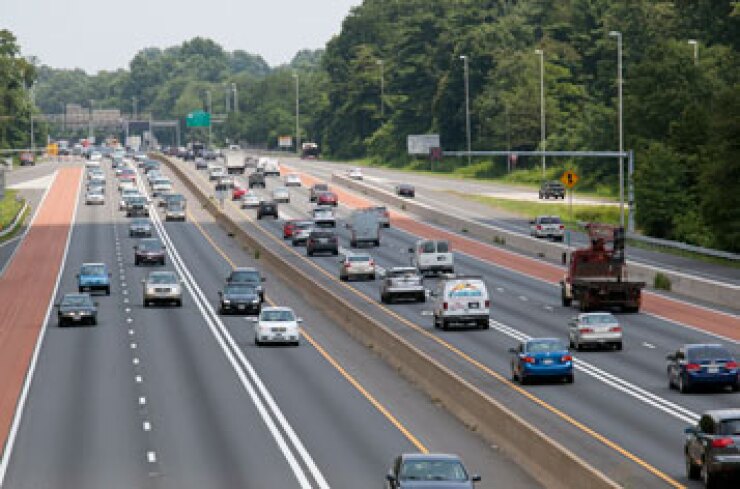
DALLAS -- Virginia will evaluate the qualifications of six potential private partners before deciding later this year whether to finance a $2.1 billion upgrade of Interstate 66 outside the Capital Beltway as a public-private partnership.
The Virginia Department of Transportation last week received official statements of qualifications from the private sector investors, some of which submitted proposals for possible delivery methods ranging from conventional public debt financing to a long-term P3.
Applicants selected for the department’s short list, which will be announced on Oct. 15, will be asked to submit financial models to the state by Nov. 30.
The Commonwealth Transportation Board has certified that the I-66 project could be financed as a P3, but Transportation Secretary Aubrey Layne will make the final decision on the financing after reviewing the qualifications and financial models of the private partner.
Financial risks and benefits would be transferred to the private sector with a P3 arrangement, Layne said. A more conventional method of using toll revenue bonds would put the financial risk on the state, but would give it the possibility of gaining an estimated $500 million of toll revenues that would not be needed for debt service or operational expenses, he noted.
“Our administration would welcome a private partner on I-66, but they must propose the best deal for Virginia,” Layne said.
Three proposals were submitted for a design-build-finance-operate model, five for design-build-operate project without private funding, and five for design-build with some alternative technical concepts.
The international consortiums that proposed a finance-operate-maintain P3 model submitted qualifications for all three delivery systems.
The P3 proposals were from Express Partners, which includes Transurban Group and Skansa USA; I-66 Mobility Partners, consisting of Cintra and Meridiam; and Transformative Solutions Partners, which includes InfraRed Infrastructrure, Isolux Corsan, and Fluor Corp.
The I-66 project is the first in the state to undergo the review process required under a law enacted this year that revised Virginia’s 20-year-old Public-Private Transportation Act.
The revised law “requires a methodical, independent and careful process to select a procurement option that minimizes risk for the public and puts their interest first,” Layne said.
Transportation Commissioner Charles Kilpatrick issued a report in August that said financing the I-66 project as a P3 would meet the new law’s standard by allowing the state to share or transfer major risks, including higher construction costs or lower-than-expected toll revenues.
“We'll go with the right option that is in the public's best interest,” Layne said after Kirkpatrick’s decision. “That option will likely be a P3, regardless of whether the project is publicly or privately financed.”
Virginia capped the public contribution to a potential P3 arrangement at $600 million in June after a preliminary analysis found the state’s share of a P3 project could be as high as $1 billion.
The state expects to issue the construction contract on the 25-mile project in northern Virginia in late 2016.
The state wants to toll the existing high-occupancy lane along both sides of the interstate through Fairfax and Prince William counties, and add another express toll lane in each direction.
Motorists could opt for the three free lanes in each direction or pay a toll, based on the time of day, to use the two express lanes. Cars with three or more occupants would not pay a toll.
The project also includes rapid bus service along the corridor and park-and-ride commuter lots with direct access to the express lanes.





